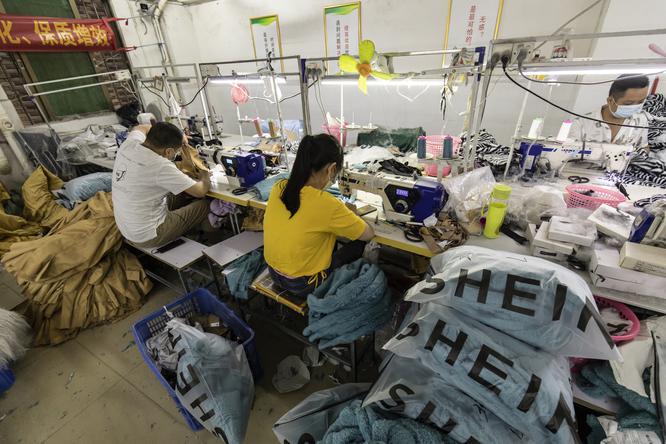Shein: an NGO warns of the working conditions of suppliers
More than 75 hours of work per week... The Swiss NGO Public Eye took an interest in the Chinese brand Shein, whose sales have literally exploded in recent months worldwide.
Cheap and ultra-trendy, Shein's clothes have taken advantage of the TikTok effect to enter the wardrobes of American and European teenagers.
In France, Shein entered directly in 6th place in the ranking of e-commerce sites generating the most expenditure, in particular by multiplying the "collaborations" with influencers and singers like Wejdene who imagined a collection of ten rooms.
But this success story is beginning to intrigue NGOs, already used to the disastrous working conditions of certain fast-fashion suppliers.
Public Eye therefore interviewed the workers of the brand's suppliers.

That is an average of more than 75 hours of work per week with only one day off per month.
Shein promises an investigation
A pace far removed from Shein's code of conduct which promotes "reasonable working time". Working time is also illegal according to Chinese law, which limits it to 40 hours a week, even if this is rarely respected in the country.
In reality, the workers, who come from the poor provinces of China and have no ties to Guangzhou where the clothes are made, are paid by the piece, thus pushing the small hands to work more.
Shein reacted to the accusations, promising to open an investigation.
Very discreet, Shein does not disclose its turnover.
Fast-fashion companies are being closely watched by NGOs after numerous scandals over supplier working conditions. In 2013, the collapse of Rana Plaza, causing the death of more than a thousand people in Bangladesh, shed light on the working conditions of workers linked to major global brands.
Thomas Leroy Journalist BFM Business






